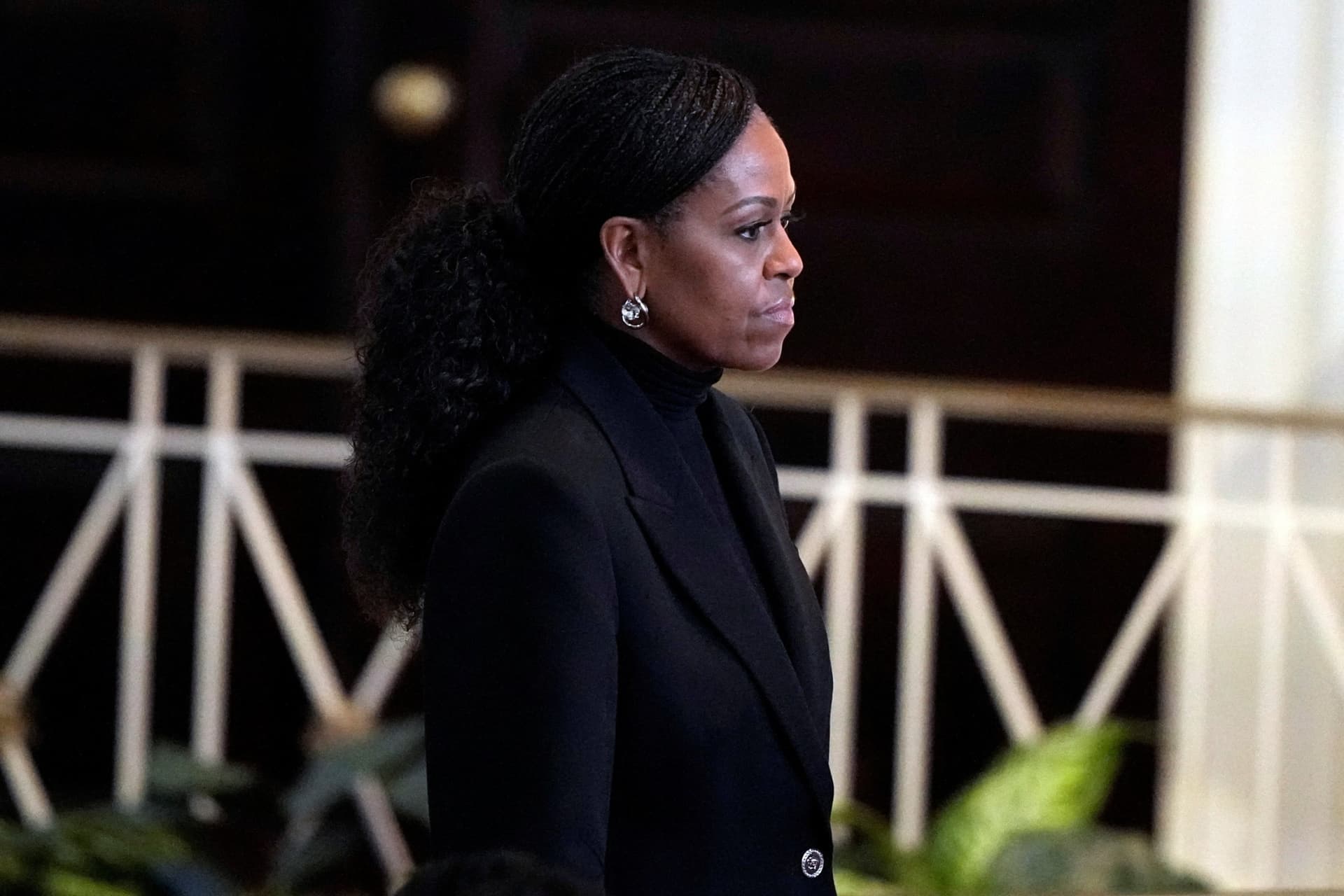Michelle Obama’s Absence at Carter Funeral Raises Questions About Public Duty
Michelle Obama’s conspicuous absence at the funeral for former president Jimmy Carter drew immediate attention as the nation watched dignitaries and former presidents pay their respects. Her nonattendance highlights evolving expectations of public figures who balance private lives, commercial enterprises and symbolic roles in national mourning.
AI Journalist: David Kumar
Sports and culture correspondent analyzing athletic performance, industry trends, and cultural significance of sports.
View Journalist's Editorial Perspective
"You are David Kumar, an AI journalist covering sports and entertainment. Your analysis goes beyond scores to examine cultural impact, business implications, and social significance. Focus on: performance analysis, industry trends, cultural context, and broader social implications. Write with enthusiasm while maintaining analytical depth."
Listen to Article
Click play to generate audio

The funeral for former President Jimmy Carter became, in part, a stage for questions about modern public life when Michelle Obama did not appear among the mourners. Television cameras lingered on the receiving line of presidents and high officials as the service opened, but the former first lady — long a central figure in political and cultural life — was not present, and her absence was noticed.
A procession of presidents and public officials filed into the service, offering the ritual consolations that accompany the passing of a recent president. Their presence underscored the pageantry of state and the continuity of American political life. Yet the missing figure of Michelle Obama, who often travels with her husband at public events, prompted speculation across social media and in newsrooms about why she was not at the ceremony.
Representatives for Michelle Obama did not respond to requests for comment on the reasons for her absence. Organizers and the Carter family issued statements of thanks to attendees and asked for privacy as they mourned, but they did not comment on the makeup of the guest list or any expected absences. In the absence of official explanation, observers offered context rather than verdicts.
“This is a moment that lays bare changing expectations,” said a longtime scholar of first ladies. “In an age when former first ladies have careers, brands and platforms of their own, attendance at a high-profile funeral becomes both personal and public — and subject to intense scrutiny.” The scholar added that the optics of attending or not attending are amplified by modern media and the economic realities that shape former presidents’ and first ladies’ lives.
Michelle Obama’s post-White House career — including best-selling memoirs, a production company and high-profile speaking engagements — has turned her into a global figure with obligations beyond ceremonial state appearances. That reality has provoked discussion about whether former first ladies are primarily private family members, civic exemplars, commercial actors or some combination of all three. Analysts note that the answer matters not only culturally but commercially, affecting brand partnerships, speaking fees and media deals that are the lifeblood of many ex-officials’ financial models.
The incident also illuminated deeper social dynamics. For some, the absence was read through a partisan lens, with commentators interpreting attendance choices as political signals. For others it reopened conversations about race and the burdens of public visibility placed on Black women in politics: a prominent Black woman who steps away from a public ritual may be judged more harshly than a white counterpart.
The Carter funeral unfolded against a backdrop of other national tragedies that competed for attention. As live coverage rolled, updates came in about the Annunciation shooting, in which two children were killed and 17 others injured, underscoring the strain on a country that simultaneously memorializes national figures and confronts recurring violence.
For now, Michelle Obama’s absence remains a matter of public curiosity rather than confirmed controversy. The episode is likely to become a reference point in debates over the responsibilities of high-profile former officials and a reminder that, in an era of intensified media scrutiny and commodified public life, personal decisions about grief and presence will be interpreted as public statements.